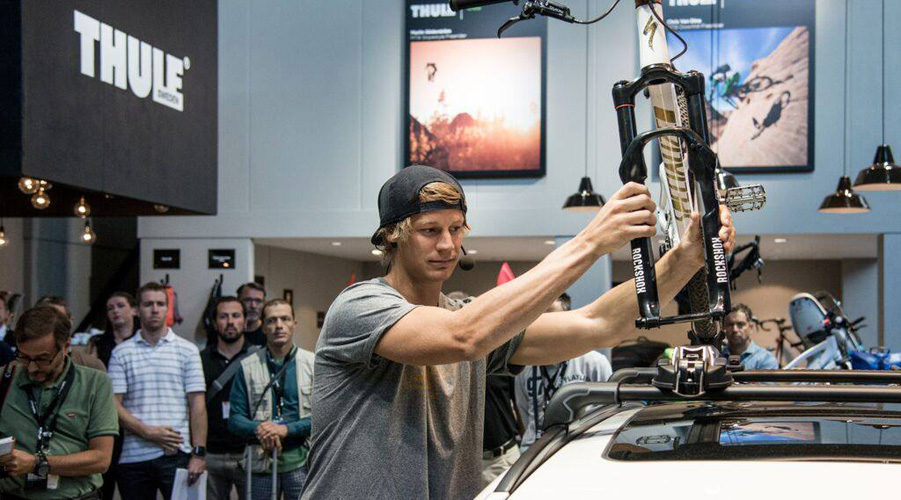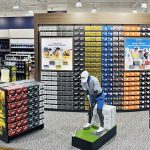By Charlie Lunan
Retail bankruptcies and weak bike sales in the United States slowed Thule Group’s growth to a crawl in the Americas in the second quarter ended June 30.
The Swedish company reported sales of its car racks, packs, bags, strollers and other products for carrying sports gear and children declined 2.1 percent to SEK524 million ($64 mmillion) in the Americas in the period. That translated to currency-neutral growth of just 0.5 percent.
“We generated growth in Canada and Latin America, while the market situation in the U.S. was less stable,” said Thule Group President Magnus Welander. “The bankruptcies of two major U.S. retail chains in the sports and outdoor market during the spring has impacted overall confidence at the retail level, including the Sport&Cargo Carriers category.”
Welander was referring to Sports Authority and Sport Chalet, which have been liquidating tens of millions of dollars in sporting goods through going-out-of-business sales at their more than 500 stores. On June 22, VF Corp. lowered the forecast for its Outdoor & Action Sports segment to reflect the impact from those sales. Dick’s Sporting Goods had already done so and other companies in the sector are expected to follow suit as they report earnings in the coming weeks.
Neither Sports Authority nor Sport Chalet were key Thule customers, but Welander said “turmoil surrounding their bankruptcies led to uncertainty among other retail chains.” North American sales and profits were also hurt by weaker-than-expected U.S. bike sales and a recall of the roof-mounted Thule Sprint mountain bike carrier.
Welander said it appears Thule defended its share in the sport-and-cargo carriers market, where its primary U.S. rival is Yakima. Thule grew its share of the technical backpack market, which it entered in 2014. Sales of sports strollers, which the company launched in 2013, were also strong.
At its Bags for Electronic Devices segment, sales declined at a significantly slower pace as the product mix at Colorado-based Case Logic shifted away from the shrinking camera bag market and toward day packs, laptop cases and other categories less susceptible to cannibalization by smartphones.
Thanks to strong growth outside the Americas, Thule was able to report group sales of SEK1.80 billion ($219 million) for the quarter ended June 30, up 6.3 percent, or 8.2 percent on a currency-neutral basis. Growth was driven primarily by Europe & Rest of World, where sales grew 12.8 percent currency-neutral.
Group operating income grew 12.7 percent to SEK417 million ($51 million), or 23.2 percent of sales, up from 21.9 in the year earlier period. Underlying EBIT rose 12.3 percent to SEK420 million, or 9.9 percent after excluding the impact of exchange rate fluctuations, an improvement of 40 basis points.
Cash flow from operating activities improved 53 percent to SEK381 million ($46 million).
Thule did not provide an outlook for the full fiscal year, which will benefit from the acquisition of GMG B.V., a manufacturer of child bike seats in the Benelux region that generated sales of €6.1 million in 2015. Thule will sell the company’s Yepp brand alongside its existing range of child bike seats to grow its “Active with Kids” category.
Lead photo courtesy Thule
















